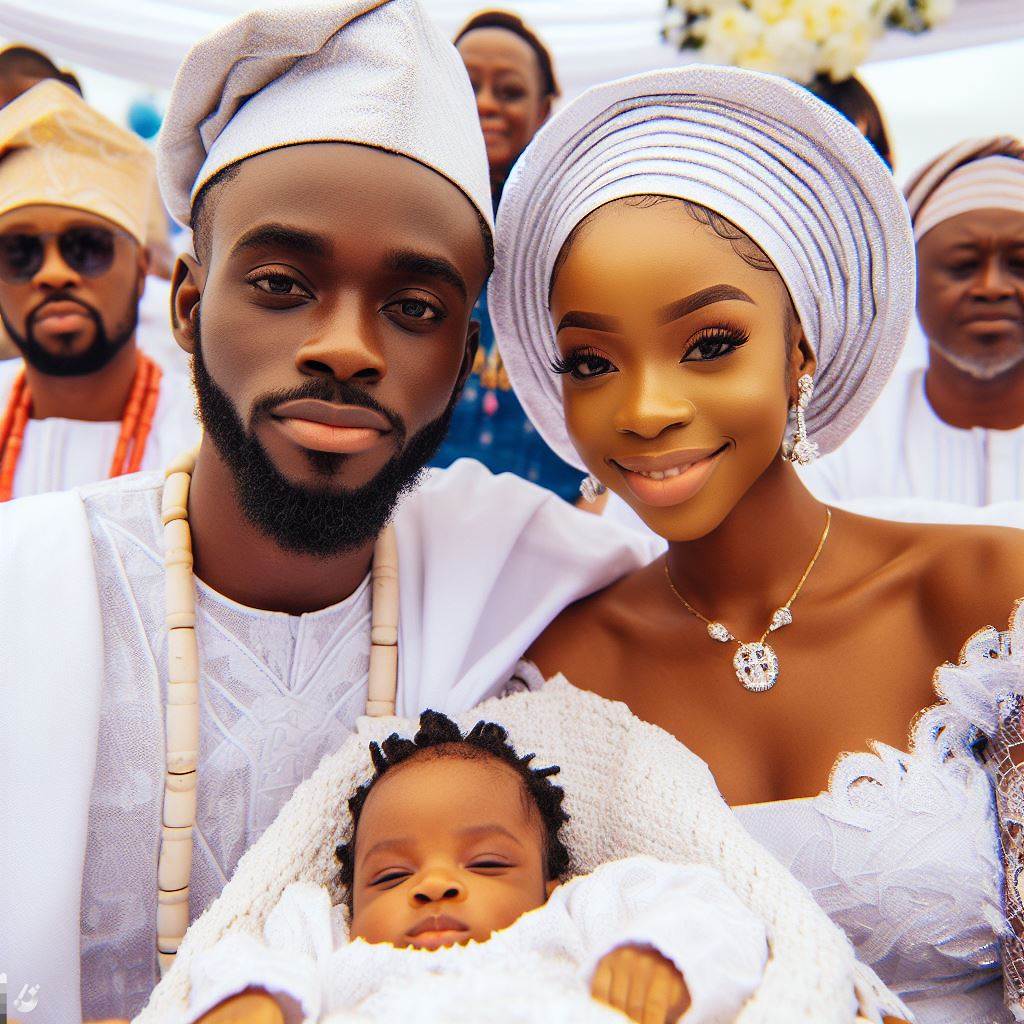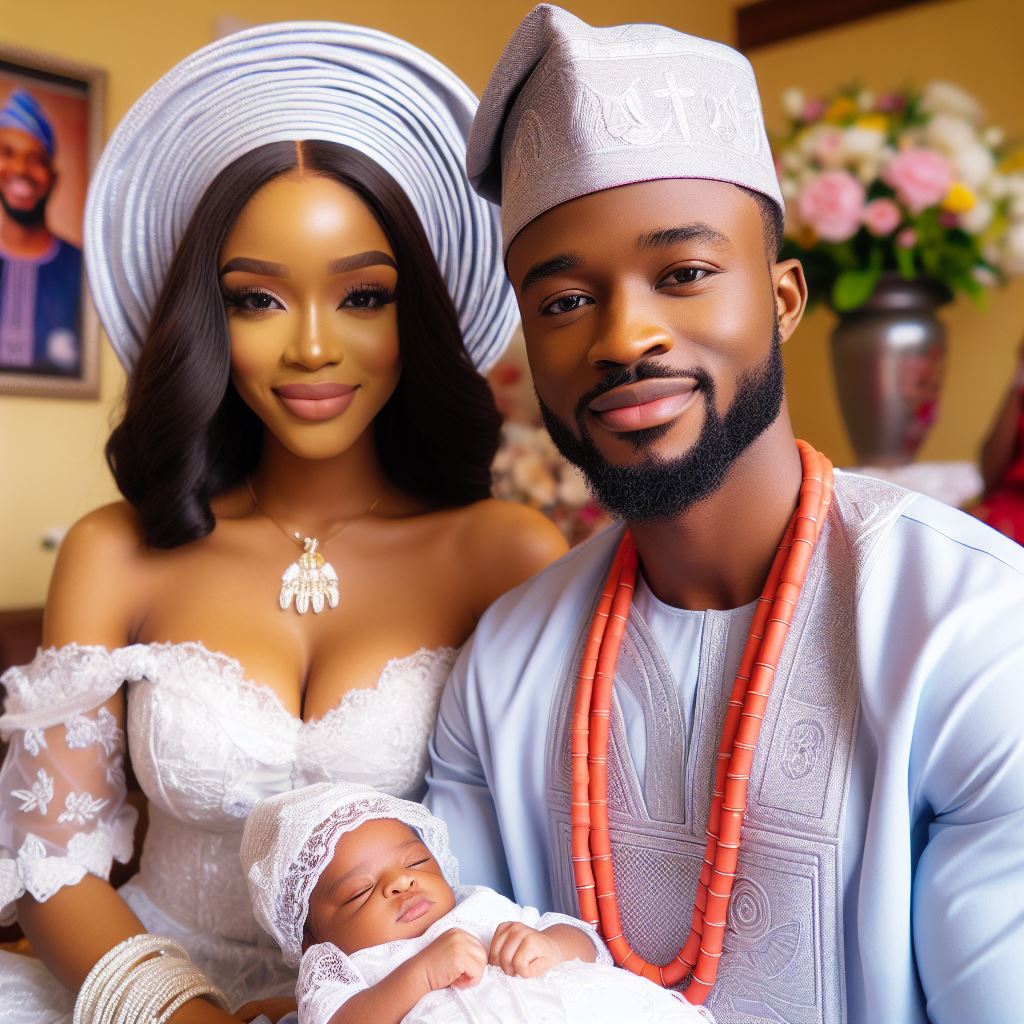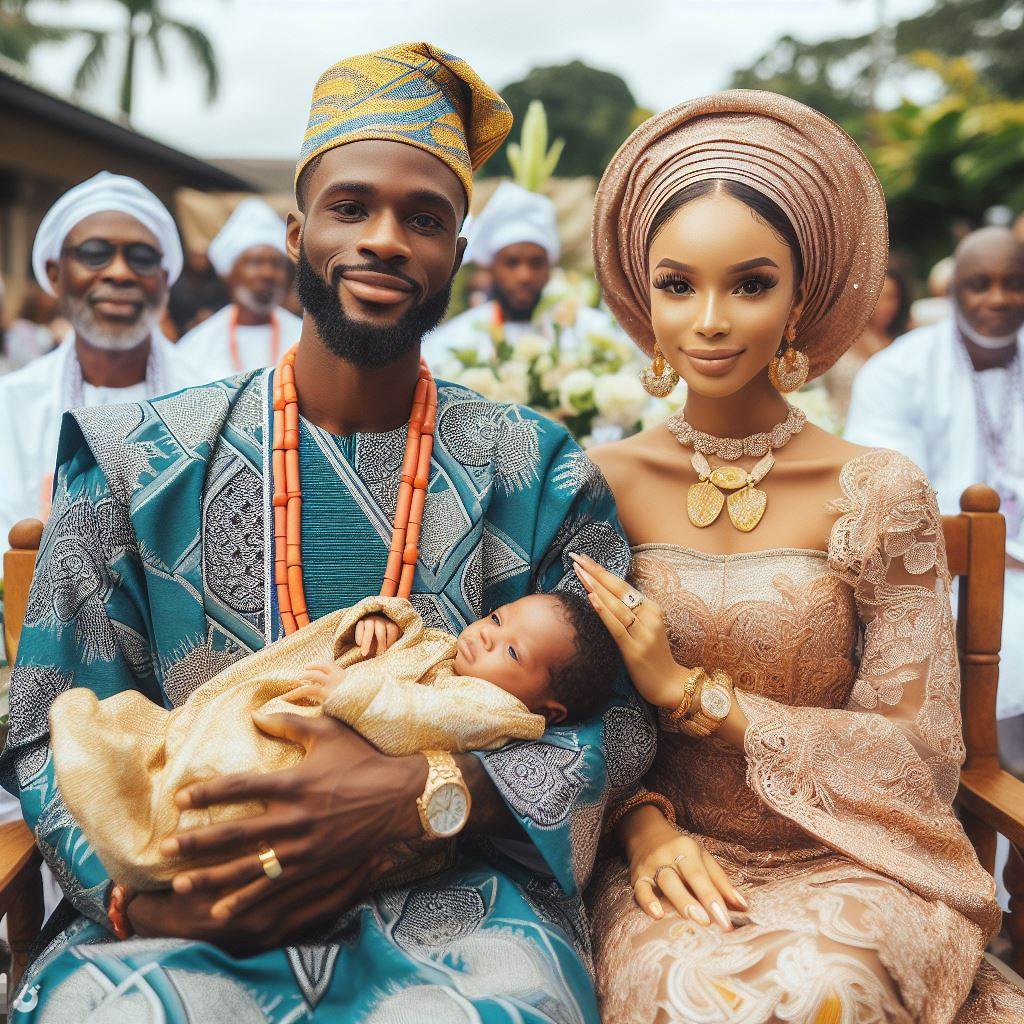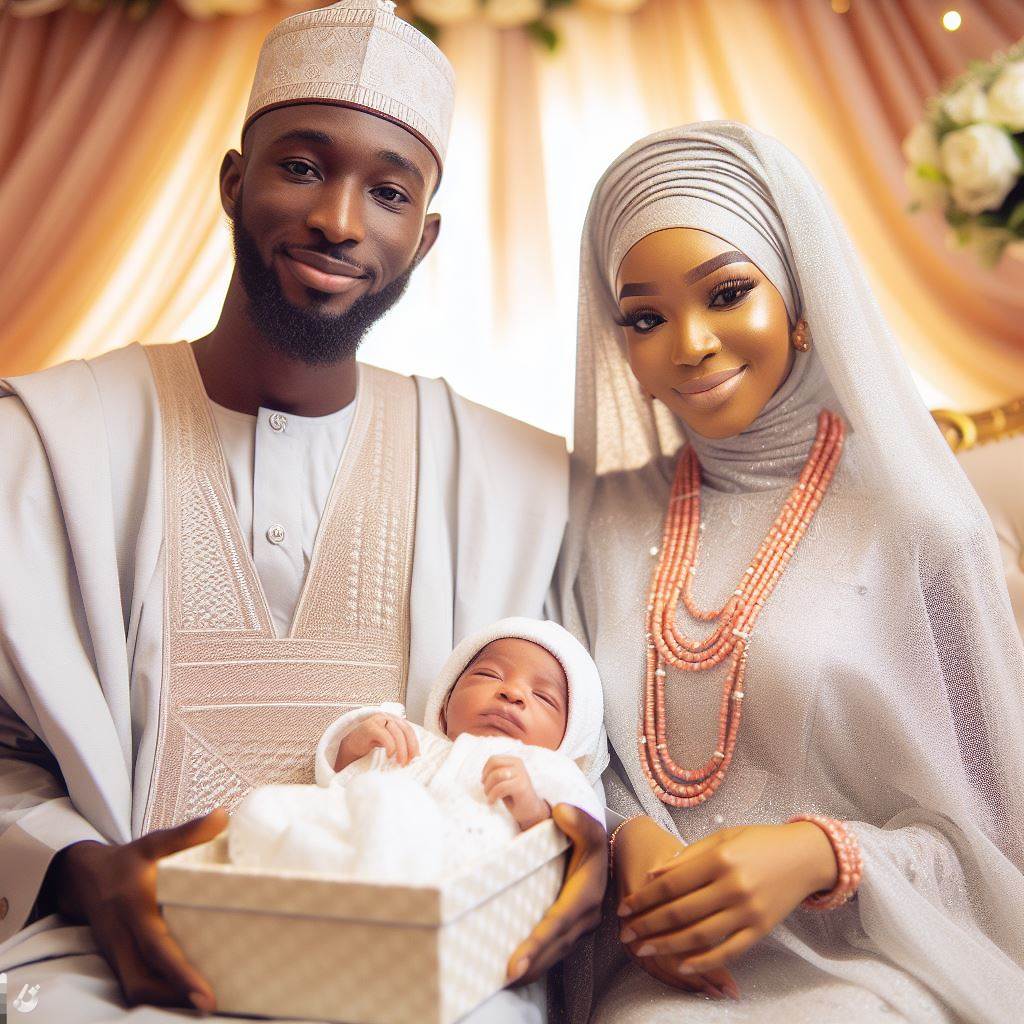Introduction
Nigerian names hold great significance in Nigerian culture as they reflect the country’s rich heritage and traditions.
Names in Nigeria are often given based on cultural, religious, or personal beliefs.
In recent years, the popularity of unisex names has been on the rise.
Unisex names are those that can be used for both males and females, highlighting a shift in societal norms and gender equality.
This blog post will delve into the roots of unisex Nigerian names and explore the reasons behind their increasing popularity.
We will discuss the cultural and historical influences that have shaped these names and how they have evolved over time.
Additionally, we will highlight the importance of understanding the meanings and origins of Nigerian names, as they provide insights into the values and beliefs of the Nigerian people.
By examining specific examples of popular unisex Nigerian names and their underlying cultural significance, we can gain a deeper appreciation for the diversity and complexity of Nigerian naming traditions.
In essence, this blog post aims to shed light on the importance of Nigerian names and the recent trend of embracing unisex names.
By understanding the cultural context and meaning behind these names, we can appreciate the rich tapestry of Nigerian culture and its evolving attitudes towards gender.
Definition and Characteristics of Unisex Names
A. What unisex names are and how they differ from gender-specific names
Unisex names are names that can be given to both males and females, without indicating a specific gender.
Unlike gender-specific names, unisex names are not limited to a particular sex. They are versatile and can be used for anyone, regardless of their gender identity.
B. Common Characteristics of Unisex Nigerian Names
- Nature-Inspired: Many unisex Nigerian names have roots in nature, incorporating elements such as rivers, trees, animals, or even natural phenomena like rainbows or sunshine.
- Virtue-Based: Another common characteristic is the use of virtue-based names. These names reflect qualities like joy, love, peace, or wisdom, emphasizing positive attributes.
- Cultural References: Unisex Nigerian names can also be influenced by cultural references, such as historical figures, traditions, or practices prevalent in different ethnic groups across Nigeria.
- Meaningful Prefixes/Suffixes: Unisex names often feature specific prefixes or suffixes that carry significance. These additions might denote the order of birth, the family lineage, or cultural beliefs.
- Sound Patterns: Many Nigerian names, including unisex ones, follow certain patterns of sounds, such as alliteration, repetition, or rhythmic syllables. These patterns contribute to the uniqueness of the names.
C. Flexibility and Adaptability of Unisex Names
Unisex Nigerian names demonstrate remarkable flexibility and adaptability, especially regarding gender.
They can be easily used for both males and females, and it is common for siblings to share similar, if not identical, names.
This versatility offers a sense of inclusivity and equality within families and communities.
Parenting Made Just for You
Get personalized Parenting Solutions tailored to your child’s needs. Transform your parenting journey with expert guidance in 1-3 days.
Get StartedTo further explore the topic, here are some examples of Unisex Nigerian names and their roots:
- Ifeoluwa: This Yoruba name means “love of God” and can be given to both boys and girls, reflecting the importance of spirituality and divine love.
- Chinedu: Derived from the Igbo language, Chinedu means “God guides” and can be used for males and females alike, emphasizing the belief in divine guidance.
- Ayodele: This name, originating from the Yoruba language, translates to “joy has come.” Ayodele can be given to both boys and girls, symbolizing happiness and celebration.
- Obioma: From the Igbo language, Obioma signifies “good heart” and can be a unisex name that reflects the value placed on kindness and compassion.
- Simisola: This Yoruba name combines “Simi” (meaning “to rest” or “peaceful”) and “sola” (meaning “wealth”) to create a unisex name representing peace and prosperity.
- Afolabi: With its roots in Yoruba, Afolabi means “born into wealth.” It is a unisex name highlighting the hope for prosperous and abundant lives.
- Olumide: Derived from the Yoruba language, Olumide translates to “God has come.” This unisex name signifies the belief in divine intervention and blessings.
- Nneka: From the Igbo language, Nneka means “mother is supreme.” This unisex name acknowledges the importance of mothers and their significant role in society.
Unisex Nigerian names not only carry cultural significance but also celebrate the diversity and equality among individuals, regardless of their gender.
These names are a testament to the rich heritage and values deeply rooted in Nigerian traditions.
Traditional Nigerian Unisex Names
A. Traditional Nigerian names that have been used for both genders
In Nigerian culture, names carry great significance and often reflect the historical and cultural values of the people.
While some names are strictly for males or females, there are several traditional Nigerian names that can be used for both genders.
These names are a testament to the egalitarian nature of Nigerian culture and the belief in shared values and responsibilities among all individuals.
Let’s explore some of these remarkable names and their origins.
B. Popular traditional unisex names and explain their origins
- Ade: This popular unisex name originates from the Yoruba people of Nigeria. It means “crown” and signifies royalty and honor.
- Amara: Originating from the Igbo culture, Amara means “grace” or “mercy.” It is a beautiful name that transcends gender and embodies the belief in divine blessings.
- Chika: Derived from the Igbo language, Chika means “God is supreme.” It is a unisex name that highlights the influence of spirituality in Nigerian culture.
- Ese: This unisex name is widely used in Nigeria and means “gratitude” in the Urhobo language. It represents the importance of appreciating life’s blessings.
- Ife: Originating from the Yoruba culture, Ife means “love.” It symbolizes the belief in the power of love and compassion in Nigerian society.
- Obi: This unisex name is derived from the Igbo language and means “heart.” It represents the value placed on emotional connections and relationships.
- Ola: Popular among the Yoruba people, Ola means “wealth” or “riches.” It reflects the importance of prosperity and abundance in Nigerian culture.
- Onyeka: This unisex name originates from the Igbo culture and means “who is greater than God?” It signifies the belief in divine supremacy and reverence.
- Osinachi: Derived from the Igbo language, Osinachi means “from God.” It represents the belief that all individuals are created and guided by a higher power.
- Taiwo: This name is predominantly used by the Yoruba people and means “taste the world.” It signifies the joy and adventure of experiencing life to the fullest.
C. Historical and cultural significance of these names
The historical and cultural significance of these traditional Nigerian unisex names is deeply rooted in the values and beliefs of the Nigerian people.
In a society where gender roles are often defined, these names challenge traditional norms and promote inclusivity and equality.
Nigerian cultures have a long history of communal living, where men and women share responsibilities and contribute to the well-being of the family and community.
These unisex names reflect this egalitarian spirit and emphasize the importance of unity and cooperation.
Moreover, the use of traditional unisex names also highlights the rich diversity of Nigeria.
With over 250 ethnic groups in the country, each with its unique language and customs, these names represent the multicultural fabric of Nigeria.
In fact, traditional Nigerian unisex names hold significant historical and cultural value. They transcend gender boundaries and promote equality and inclusivity.
Unveil the Perfect Name that Tells Your Family's Story
Let us help you find a name that embodies your family's values, traditions, and dreams. Our personalized consultation weaves cultural insights to create a name that's uniquely yours.
Get StartedThese names are a testament to the belief in shared values and responsibilities in Nigerian society.
As Nigerian culture continues to evolve, these names serve as a reminder of the nation’s rich heritage and the importance of embracing diversity and unity.
Read: Igbo Names for Babies: Meanings Explained!
Modern Unisex Nigerian Names
A. Emerging trend of modern unisex Nigerian names
In recent years, a fascinating trend has emerged in Nigerian culture – the rise of modern unisex names.
These names defy traditional gender constraints and provide individuals with a sense of freedom and individuality.
This section will discuss the factors that have influenced the popularity of these names, provide examples of modern unisex names, and explore their meanings.
B. Factors that have influenced the popularity of these names
The increasing acceptance of gender fluidity and the rejection of gender norms have played a significant role in the popularity of modern unisex Nigerian names.
Parents now embrace non-gender-specific names for their children, breaking free from societal expectations and fostering inclusivity.
This trend empowers individuals to express their true selves, regardless of societal conventions.
Moreover, the influence of popular culture cannot be overlooked when examining the popularity of modern unisex names in Nigeria.
Movies, music, and literature often depict characters with unisex names as strong, independent, and forward-thinking individuals.
This portrayal inspires parents to choose names that reflect these qualities, fostering a sense of empowerment and resilience in their children.
C. Modern unisex names and explain their meanings
Examples of modern unisex Nigerian names are abundant, each with a unique and often symbolic meaning.
One popular name is Tayo, which means “joy” or “happiness.” This name not only carries a positive connotation but represents the desire for emotional well-being in both boys and girls.
Another example is Akachi, which means “hand of God.” Akachi is a powerful name that resonates with strength and divinity, appealing to parents who want their children to embody these qualities.
Another modern unisex name gaining popularity is Oluwanifemi, meaning “God loves me.”
This name instills a sense of self-worth and acknowledges the unconditional love from a higher power.
By choosing this name, parents emphasize the inherent value and importance of their child.
Additionally, the name Ifeoluwa, meaning “love of God,” is gaining popularity as it conveys the notion of divine love for both boys and girls.
The increasing popularity of modern unisex names is in direct contrast to the traditional practice of assigning gender-specific names in Nigeria.
Historically, names like Adekunle, which means “the crown has come home” or Aminat, meaning “trustworthy,” were reserved exclusively for boys and girls, respectively.
D. The rise of modern unisex names
The rise of modern unisex names challenges these stereotypes, encouraging a more inclusive and open-minded society.
The significance of modern unisex Nigerian names goes beyond breaking gender stereotypes.
These names also foster a sense of unity and equality among individuals of different genders.
Promoting a shared experience and common identity by using names adaptable for both boys and girls is essential.
Individuals define themselves by character, achievements, and aspirations, avoiding confinement by gender.
In short, the emergence of modern unisex Nigerian names is a powerful representation of the changing dynamics within Nigerian society.
Increasing acceptance of gender fluidity, popular culture influence, and empowering individuals drive the popularity of these names.
These names not only break gender stereotypes but also promote unity and equality among all individuals.
As society evolves, the embrace of modern unisex names signifies a step towards a more inclusive and accepting future.
Read: Top 10 Unique Yoruba Baby Names in 2024
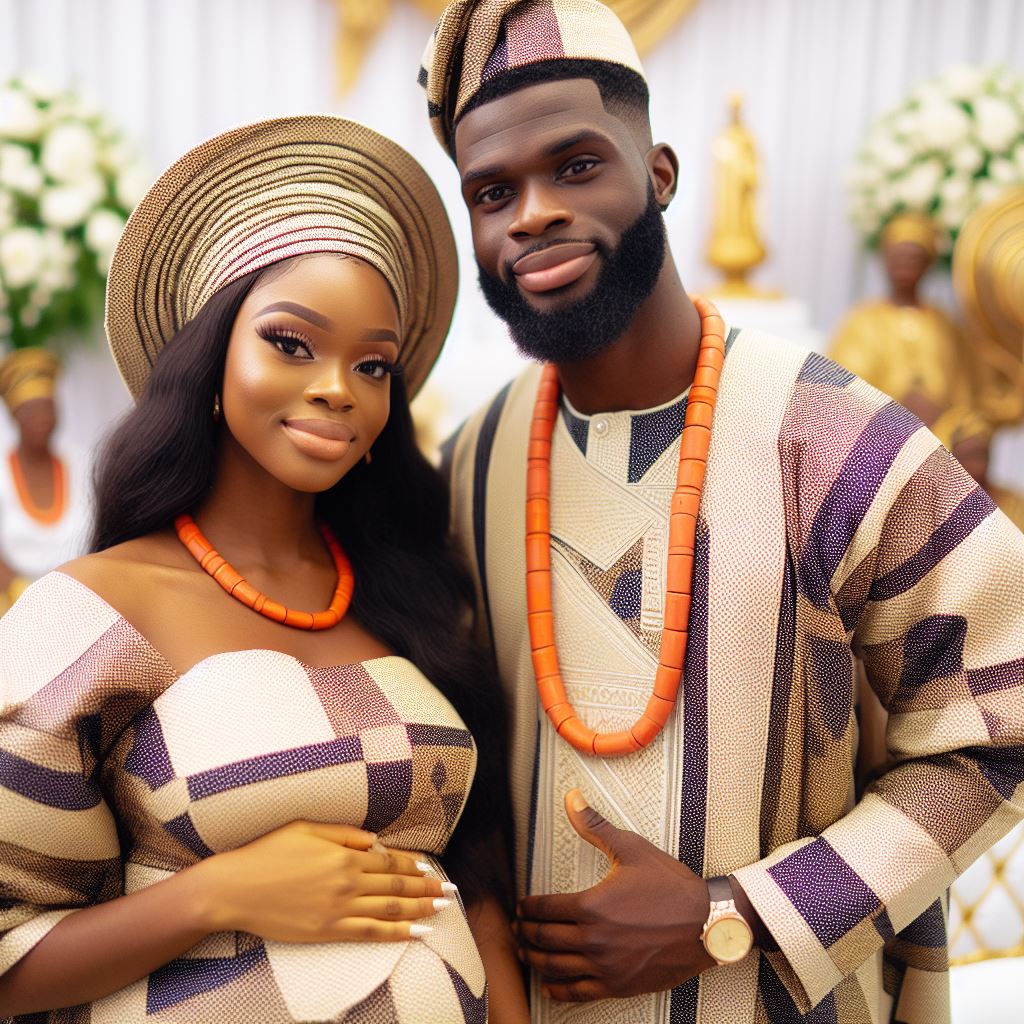
Influences from Other Cultures
A. Influences from other cultures that have contributed to the adoption of unisex names in Nigeria
Nigeria’s rich diversity influences unisex names, reflecting various cultures and highlighting the blending of naming traditions.
Global trends and cross-cultural interactions actively influence the adoption of unisex names, alongside the impact of local traditions.
B. Impact of globalization and cross-cultural interactions on Nigerian naming trends
Globalization has played a significant role in shaping Nigerian naming trends.
As the world becomes more interconnected, people are exposed to different cultures and traditions.
This exposure has led to the adoption of names that transcend traditional gender norms.
C. Nigerian names that have been influenced by Western, Middle Eastern, or other African cultures
One example of cross-cultural influence can be seen in the adoption of Western names.
In recent years, names like Taylor, Jordan, and Avery have become popular among Nigerian parents.
These names are traditionally used as first names in Western countries, but in Nigeria, they are often used as unisex names.
Middle Eastern cultures have also had an impact on Nigerian naming trends.
Nigeria has embraced names like Ali, Amira, and Fatima, popular in Middle Eastern countries, reflecting cultural influences.
Openness and acceptance of diverse naming practices have rendered these names no longer exclusively associated with specific genders.
Additionally, African cultures have influenced Nigerian unisex naming traditions.
Names like Kofi, meaning “born on a Friday,” and Amara, meaning “grace” in Igbo, have become popular unisex choices in Nigeria.
These names are derived from different African languages and have been embraced by Nigerians across tribes and regions.
D. Influence by colonial history
Furthermore, Nigerian names have also been influenced by the country’s colonial history.
Colonial rulers gave many Nigerians European names during the colonial era.
These names often had no specific gender association and were adopted as unisex names by future generations.
The influence of other cultures on Nigerian naming trends goes beyond a simple adoption of names.
It also reflects the evolving perception of gender and the breaking down of traditional gender stereotypes.
Nigerian parents are increasingly choosing names based on personal preference rather than adhering to societal norms.
Cross-cultural interactions have allowed Nigerians to embrace names from different backgrounds, celebrating diversity and inclusivity in their naming practices.
This openness is a reflection of Nigeria’s multicultural society, where people from various ethnicities and backgrounds coexist harmoniously.
In general, the influences from other cultures have had a significant impact on the adoption of unisex names in Nigeria.
Globalization, cross-cultural interactions, and the breaking down of traditional gender norms have all contributed to the diversification of Nigerian naming trends.
As Nigeria continues to embrace its rich cultural heritage while engaging with the global community, the use of unisex names will likely continue to grow and evolve.
Read: Pregnancy & Sex: A Guide for First-Time Parents
The Cultural and Social Implications of Unisex Names
A. Cultural and social implications of using unisex names in Nigeria
In recent years, the use of unisex names in Nigeria has become a growing trend.
Increasingly, parents actively choose unisex names, challenging conventional gender norms by selecting names suitable for both boys and girls.
This shift has significant cultural and social implications, which are worth exploring.
B. Advantages and disadvantages of choosing unisex names for children
One of the main cultural implications of unisex names is the breaking down of gender stereotypes.
In Nigeria, like in many other societies, names are often used to signify gender.
Parents challenge societal norms by selecting a gender-neutral name, defying expectations tied to traditional gender associations.
This can have a positive impact on the way gender is perceived and understood in Nigerian culture.
Moreover, the use of unisex names also reflects the changing dynamics of gender roles in Nigerian society.
Women challenging traditional gender roles in politics and business redefine the binary understanding of gender, making significant strides.
Unisex names can be seen as a way to acknowledge and celebrate this progress.
However, there are also potential disadvantages to choosing unisex names for children. One major concern is the ambiguity that comes with such names.
It may lead to confusion and misunderstandings, particularly in official documents or professional settings where gender identification is necessary.
Individuals with unisex names may face discrimination or exclusion due to potential negative consequences associated with their names.
Another disadvantage is the potential impact on gender identity.
Some argue that by giving children unisex names, there is a risk of blurring the lines between male and female identities, potentially leading to confusion or feelings of being undefined.
This could have long-term implications on individuals’ sense of self and their ability to navigate societal expectations.
C. Potential impact of unisex names on gender identity and societal norms
Despite these concerns, there are several advantages to choosing unisex names. One of the main advantages is the flexibility it offers to individuals.
A person with a unisex name escapes societal gender expectations, embracing a more inclusive and flexible identity.
Expressing themselves authentically, chefs enjoy freedom, unrestricted by stereotypes or norms, shaping culinary experiences uniquely and creatively.
This can contribute to a more inclusive and open-minded society.
Additionally, unisex names promote equality and fairness.
By giving both boys and girls the same opportunities for names, parents are sending a powerful message about gender equality from an early age.
This can have a positive impact on children’s self-esteem and overall sense of worth.
Ultimately, the use of unisex names in Nigeria has the potential to disrupt societal norms and create a more inclusive culture.
It challenges the limitations placed on individuals based on their gender and encourages a more fluid understanding of identity.
Despite concerns about ambiguity and potential impacts on gender identity, we should not overlook the advantages of flexibility, equality, and breaking down traditional stereotypes.
In a nutshell, the cultural and social implications of using unisex names in Nigeria are significant.
They challenge gender norms, promote equality, and offer individuals the freedom to express themselves authentically.
While there are some potential disadvantages, the overall impact is likely to be positive in terms of creating a more inclusive society.
As more parents opt for unisex names, it is important to continue exploring and understanding the implications and effects on both individuals and society as a whole.
Read: Hausa Baby Names: Ancient and Modern Picks
Conclusion
It is evident that unisex Nigerian names have deep roots and rich cultural significance.
These names not only reflect the diversity and unity of the Nigerian people but also play a crucial role in preserving our cultural heritage.
Embracing and appreciating these unisex names honors our ancestors and the values passed down through generations.
It allows us to maintain a strong connection to our roots and forge a sense of identity within our children.
We encourage readers to explore the wide range of unisex Nigerian names available and consider incorporating them into their parenting journeys.
By doing so, we contribute to the preservation of our cultural heritage and celebrate the beautiful diversity that exists within our society.
Let’s recall that our names aren’t mere labels; they hold stories, traditions, and histories deserving of cherishing and sharing.
So, let us proudly embrace our unisex Nigerian names and continue to pass on this valuable heritage to future generations.

